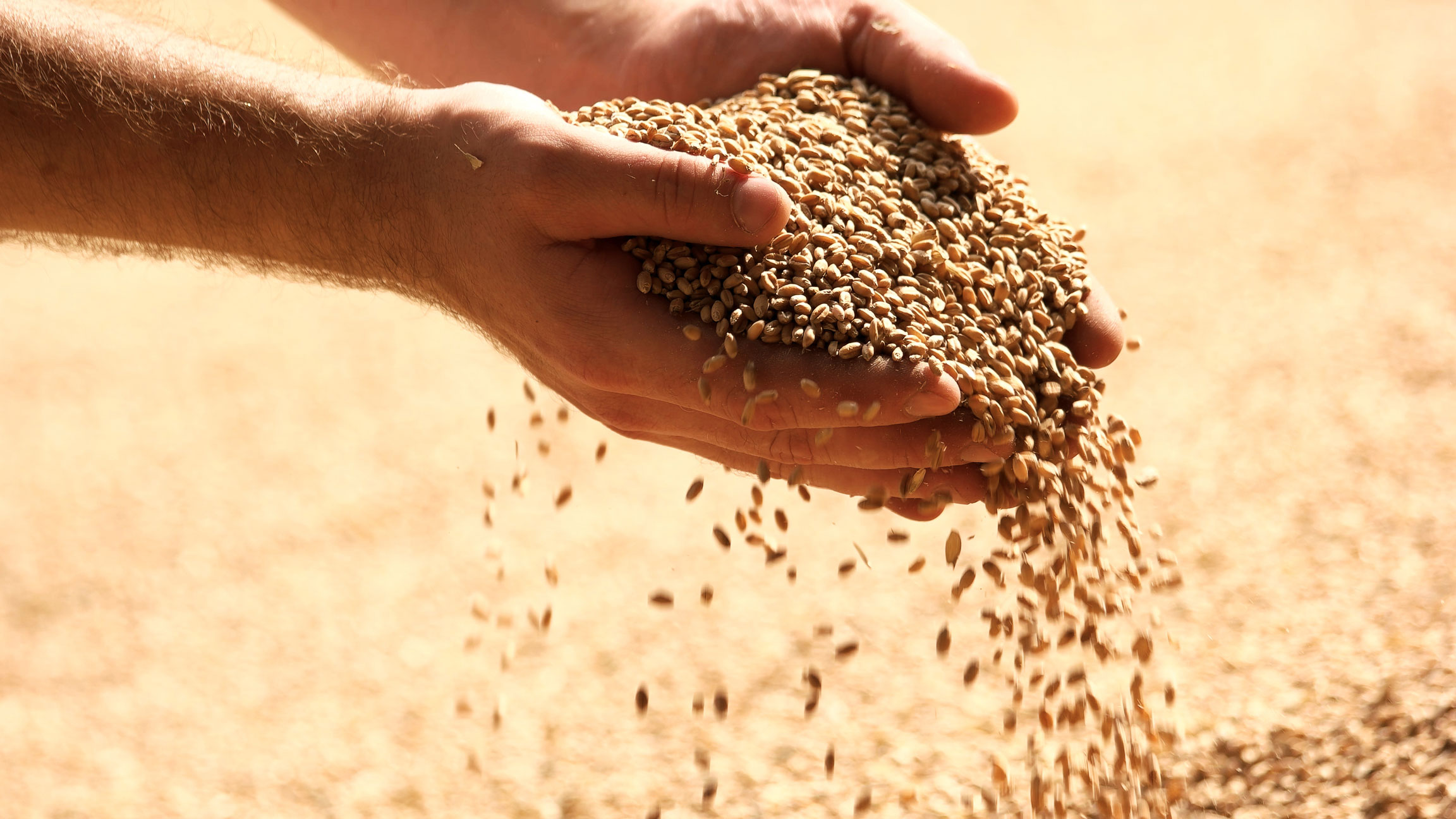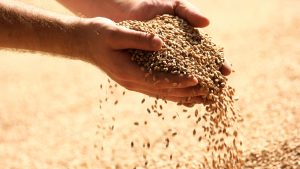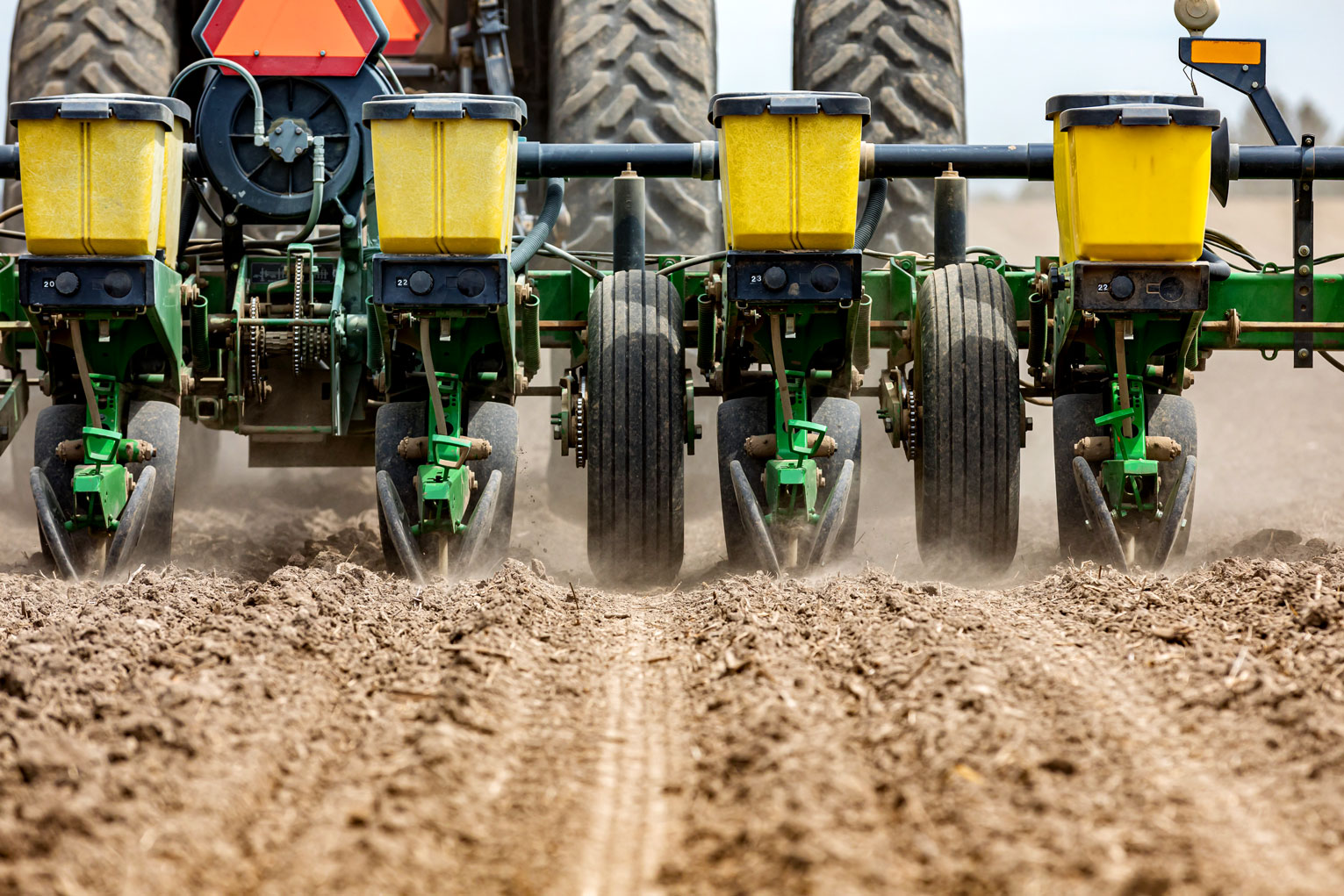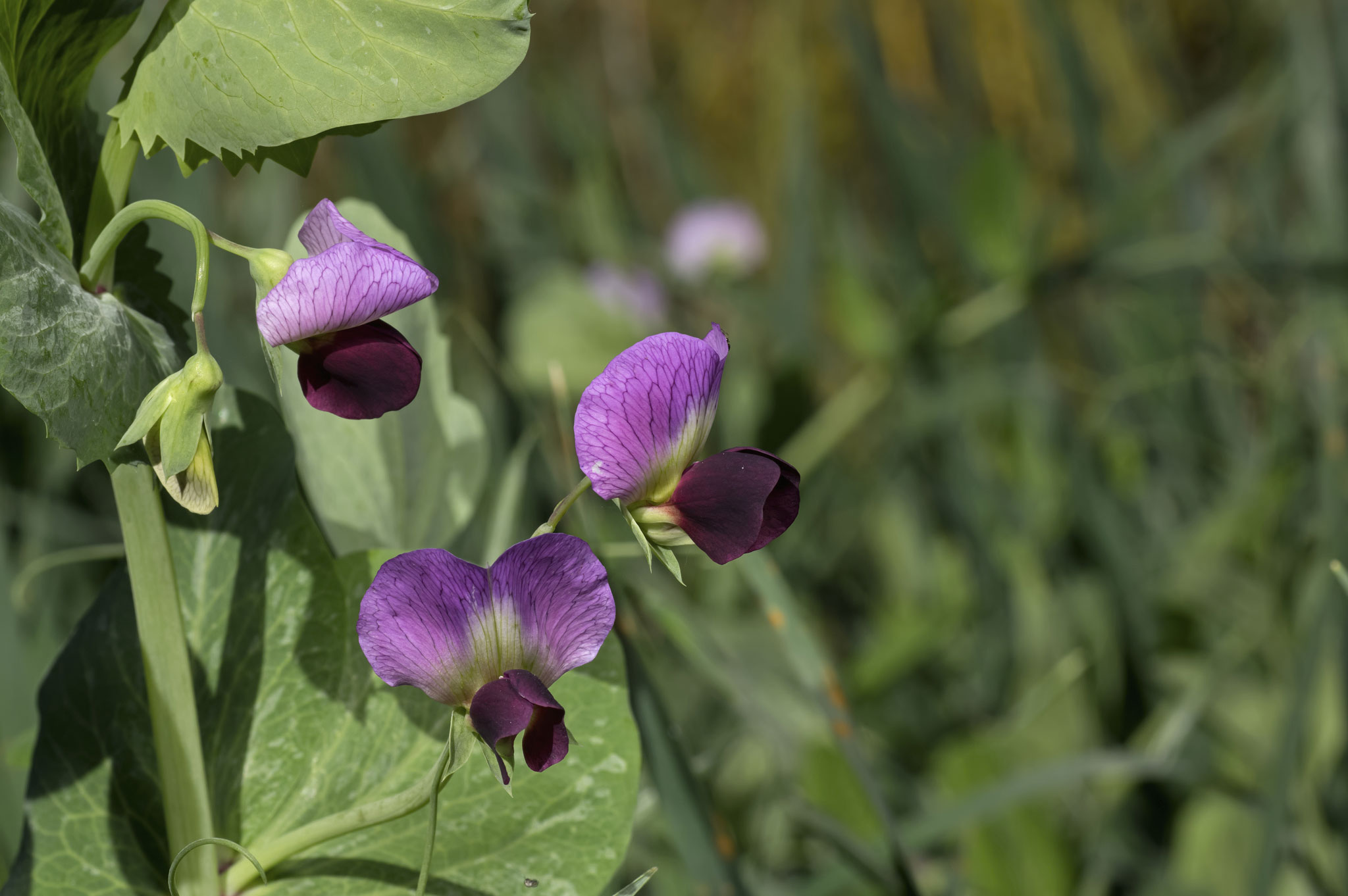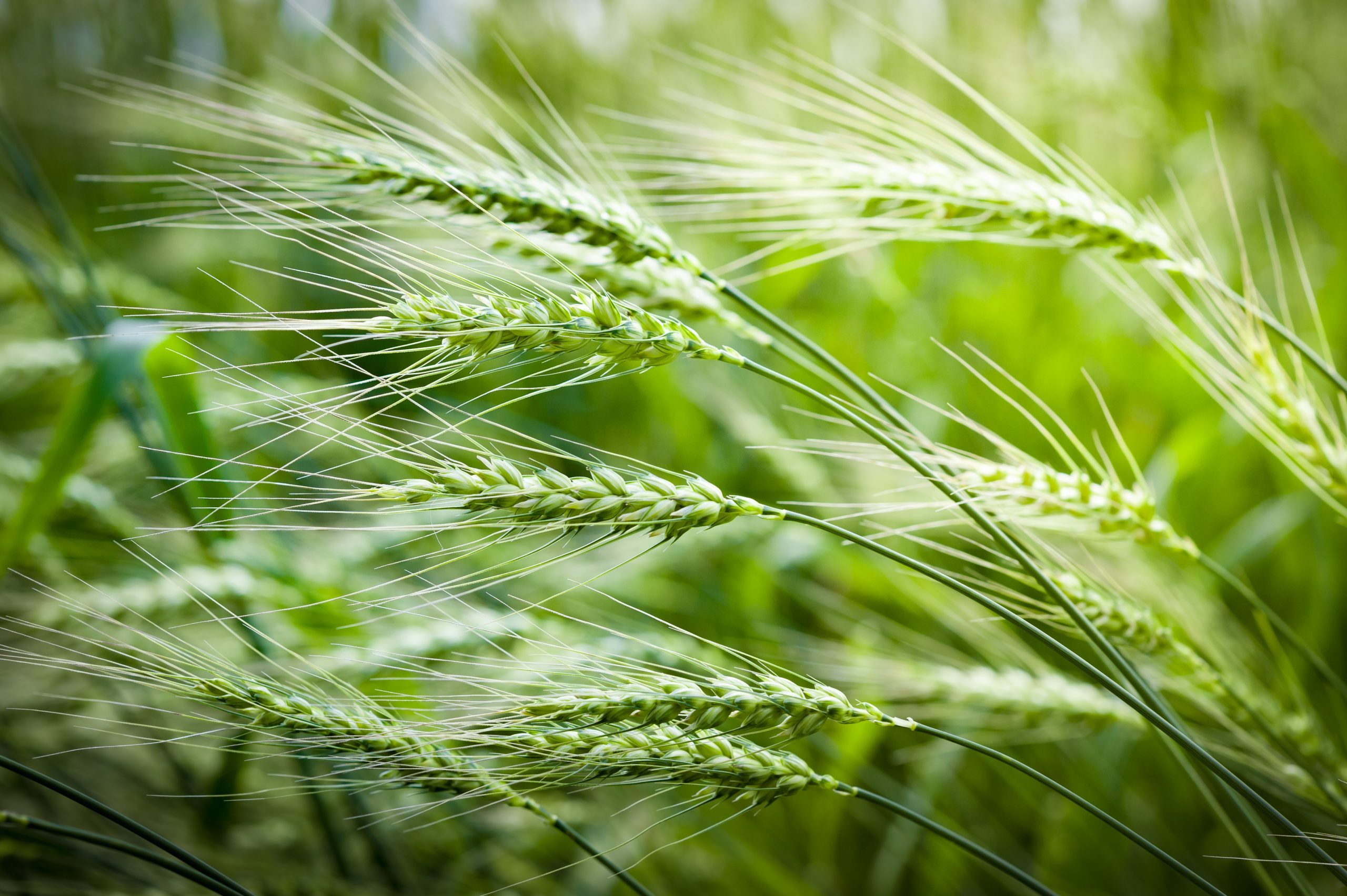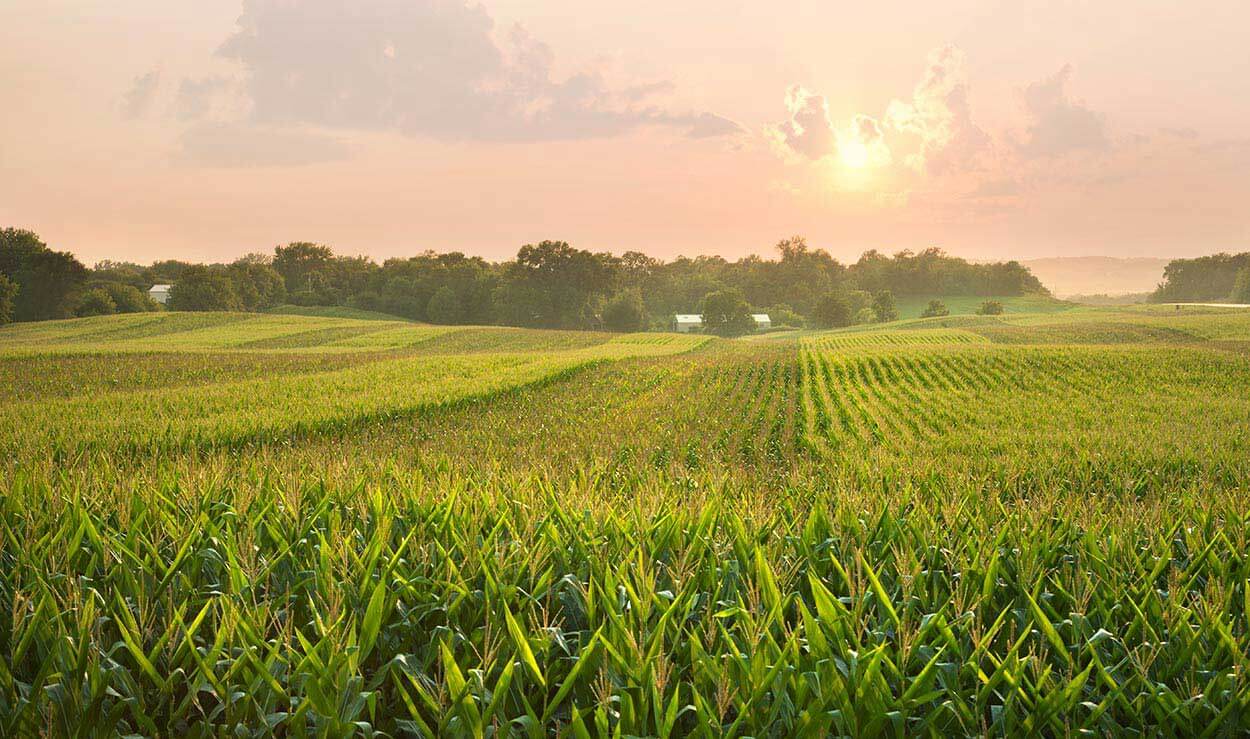- Published On: June 29, 2021
- Author: AgriSecure
It’s never too soon to think about your certified organic seed selections.
That’s especially true if you want a popular variety. Wait too long and it could sell out, says Scott Ausborn.
Scott has worked in the organic seed market since 2008. And he’s currently a regional sales manager in the Northern Corn Belt for Blue River Organic Seed. He began transitioning his own farm in 2016 and has grown certified organic crops since 2018.
We talked to Scott about certified organic seed. He shared his advice and told us what organic farmers should consider before they place their seed orders.
What counts as “certified organic seed”?
First, let’s quickly cover what qualifies as certified organic seed. Scott explains that seed produced under the same rules and practices as organic crops counts as certified organic seed. That means it’s grown without synthetic pesticides and fertilizers.
So what’s the difference between certified organic and untreated non-GMO seed? The latter likely came from farm systems that applied synthetic chemicals.
Follow sound principles when choosing seed
If you’re a first-time organic seed buyer, good news. It’s not all that different from selecting conventional seed. The decision making processes that you go through are pretty much the same.
Let’s start with research. All farmers need to study up on how a variety performed. And you can do this via seed company reports, university trials, and more. Scott believes universities can be an especially good resource. In the Midwest, he points to the University of Wisconsin, Iowa State University, and University of Minnesota as schools that run reputable organic seed trials.
Organic farmers should also look at replicated testing data. This helps you get a feel for how varieties handle different environments.
“It seems like there are a lot more variables involved with organic farming, even in one field, than in conventional fields,” Scott says. “Find different situations and see how the seed performed.”
And just like in conventional farming, you want to tailor your organic seed selections field by field. Using multiple varieties can help spread your risk out, too. It helps ensure you’ll have crops that can handle whatever Mother Nature brings, whether it’s drought or downpours.
How to choose certified organic seed
In general, Scott recommends choosing varieties and hybrids with strong emergence and vigor. “We want that crop to get up and going before the weeds do. You want to be able to start mechanical weed control as early as possible,” he says.
Also look for varieties that can handle stress like low fertility or pests and diseases. Why? Because organic nutrients may not be available when you need them and organic farmers can’t apply synthetic chemicals to control the latter two.
He also advises knowing the markets you’re selling to and what your buyers want, especially with specialty markets. Some buyers may want high-weight corn. Other will need clear hilum soybeans or food-grade soybeans. You can make more profitable seed selections when you go in knowing the needs of your buyers.
Test seed during the transition process
If you’re not sure what varieties to choose, Scott suggests talking with local organic farmers or experts with local insights. Find out what works well for them. Then see if you can try the same ones on your own ground.
In fact, the transition period is perhaps the best time to experiment with different varieties.
“If one doesn’t perform like you had hoped, it’s better to make that mistake during your transition. If you wait to try it after you’re certified, you stand to lose more. And that’s because your organic crop is worth twice as much as the transition crop,” Scott says.
It’s important to know, too, that Blue River and other companies often offer test plot seed. That can be a good way to do your own on-farm trials if you’re interested.
Finally, consult with a seed rep that you can trust. While this is important no matter your growing practices, organic farmers should work with someone who knows organics. They should understand what practices you follow, how you handle weed control, and what inputs you can and can’t use.
Order early to save money and get what you want
Like the conventional market, organic seed companies offer discounts for early orders. Beyond the savings, buying early helps reduce the risk of not getting your first picks.
“The biggest complaint we get with farmers is, ‘Well, I wanted to order this variety, but now it’s not available and I have to change to something else,’” Scott says.
When Blue River starts taking orders in September, most fields haven’t been harvested yet. Scott says they don’t know how many bushels a variety will yield, and they definitely don’t know the quality. How is it going to germ out? Will it be clean of GMOs?
It takes time to go through the seed and figure out what’s good and usable. If they don’t have enough quality seed to fulfill every order, then it comes down to first come, first serve.
Why buy certified organic seed?
The truth is certified organic seed isn’t the least expensive option. And while the National Organic Program rules say that a “producer must use organically grown seeds,” there’s a loophole. If an equivalent organically produced variety is not commercially available, farmers can use non-organically produced, untreated, non-GMO seed.
Still, buying seed that isn’t certified organic can do a disservice to the organic industry. Scott says when you purchase certified organic seed, you’re supporting local organic farmers who raise the seed. It also boosts the industry and helps organic seed companies develop newer and better varieties.
“If you’re buying conventional untreated seed from the large chemical companies, all they’re going to do with that income is create more GMOs or things that aren’t going to help organic farmers,” Scott says.
These days, the organic seed market is the strongest it’s ever been. A decade ago only a handful of companies existed, but that’s no longer the case. Farmers have more choice and options than ever before. And seed quality has improved at the same pace as conventional seed.
Scott has also noticed an increased emphasis on non-GMO purity, a push brought on by both farmers and consumers. To ensure GMO-free seed, Blue River follows a comprehensive list of prevention practices and tests regularly for GMOs.
Staying focused on organic
Blue River’s mission is the same today as when it was founded in 2005. They want organic farmers to be able to stay true to their practices and principles without sacrificing performance. Scott says they’re fully committed to providing high quality organic seed. And they’re able to do that for organic farmers by running a strong internal breeding and testing program.
“We really lean on that side of the company. We look at our varieties in hundreds of different situations, maybe 1,000, before they get released,” Scott says.
To learn more about Blue River, their seed offerings, and trial results visit their website: blueriverorgseed.com.
Tailored organic advice
Wondering what organic varieties would work best for your farm? Not sure where to begin? Let us help. Contact AgriSecure for a free consultation and get our expert tailored advice.
Related Articles
-
Organic Planting Dates: Sometimes Starting Later is Better
If you’re an organic farmer, what are the ideal organic planting dates? Most conventional farmers are primed to plant early because it often maximizes yield potential. Seed treatments can protect against cooler soil temperatures and herbicides can deal with weeds. But organic farmers have to tackle these problems with other means. We have to think […]
-
Organic Cover Crop Seed Improves Profits and Soil Health
The Raikes’ are transitioning as many row crop acres of their family farm into organics as possible. And they’ve seen such remarkable economic and soil health benefits with cover crops on those fields that they’ve decided to launch a new business, Nebraska Cover Crop, too. Justin Raikes, a fifth generation farmer in Nebraska, shares his […]
-
7 Tips for Success After Organic Transition
It’s been 36 months since you started the transition process, and now you’re entering your first growing season as a certified organic farmer. While this means finally being able to reap those high premiums, it also means that any mistakes made are going to cost more. By following these 7 tips, you can reduce the […]
-
4 Keys to Early Season Organic Success
Given how often things change in farming, some consider plans to be obsolete. But for large-scale organic producers, developing a plan is key to avoiding pain points that can hurt your bottom line. And when things change, as they often do, a plan can help determine your next best course of action. To develop an […]
-
May 2018 – Agrisecure Newsletter
Agronomy insights April was extremely cold for much of the Midwest, which caused delays for many growers. However, soil temperatures rose above the May 10-year average for most Midwestern counties, with the exceptions of soggy NW Iowa and Southern Minnesota. As a result, most regions have been able to get most crops planted on schedule. […]
Get in the know
Our newsletter, it’s a quick read. You’ll get industry news plus all the latest organic insights. Who doesn’t want that?
